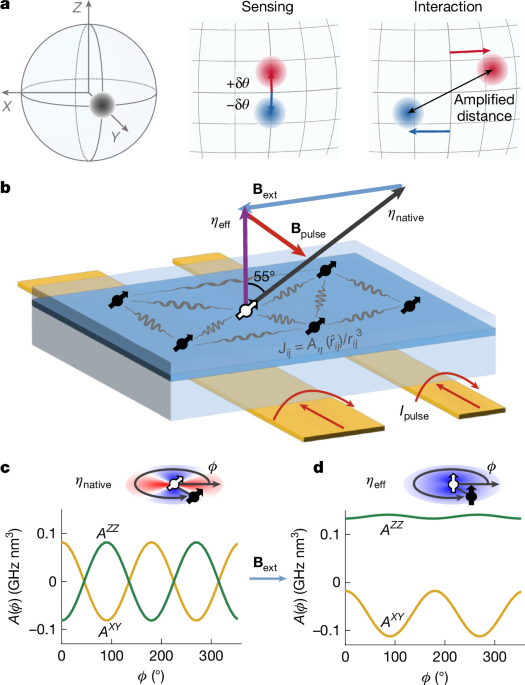
"Quantum correlations and entanglement are now actively explored to improve precision measurements in a variety of quantum systems. For example, in so-called spin squeezed states9,13, quantum correlations are generated to reduce (squeeze) the quantum projection noise along a certain quadrature of the collective spin, thereby improving the precision of measurements along that quadrature. Recently, spin squeezing has been realized in several experimental platforms, including cavity-QED systems14,15, Rydberg atoms16,17,18,"
"Although these approaches can be effective in systems with a high degree of isolation and control, an alternative strategy-signal amplification12,23-focuses on using many-body dynamics for amplifying the measured signal, rather than reducing quantum noise (Fig. 1a). While complementary to spin squeezing, the key feature of this approach is the improved robustness against technical noise during readout, which makes it applicable to a much broader class of quantum systems that do not naturally support high-fidelity quantum limited measurements under ambient conditions24."
Quantum correlations and entanglement enable improved precision measurements across quantum platforms by reducing quantum projection noise through spin squeezing. Spin squeezing has been realized in cavity-QED, Rydberg atoms, trapped ions, Bose-Einstein condensates, superconducting qubits and atomic vapour cells, enabling applications such as atomic clocks, magnetometry and matter-wave interferometry. An alternative strategy, signal amplification, uses many-body dynamics to amplify measured signals instead of reducing quantum noise. Signal amplification is complementary to spin squeezing and provides improved robustness against technical readout noise, extending applicability to quantum systems that lack high-fidelity, quantum-limited measurements under ambient conditions.
Read at Nature
Unable to calculate read time
Collection
[
|
...
]